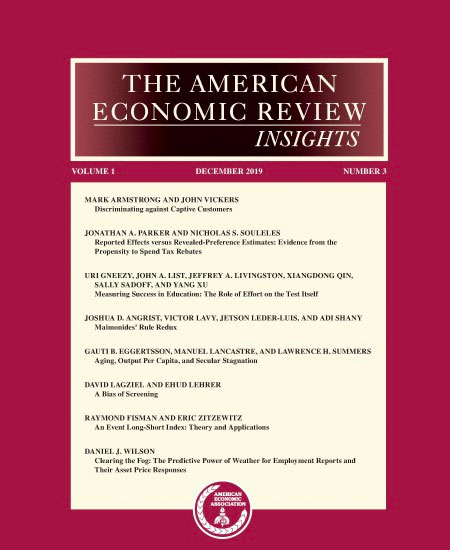经典拍卖中的最优信息披露
IF 6.7
1区 经济学
Q1 ECONOMICS
引用次数: 4
摘要
我们刻画了二级价格拍卖中收益最大化的信息结构。卖方面临着一种权衡:更多的信息提高了分配效率,但给竞标者带来了更高的信息租金。使卖方收益最大化的信息披露政策是充分披露低值(竞争高的地方),而集中披露低值(竞争低的地方)。池的大小由一个关键分位数决定,该分位数独立于值的分布,仅取决于竞标者的数量。我们将讨论这一政策如何为数字广告的合并提供理由。(凝胶d44, d82, d83, m37)本文章由计算机程序翻译,如有差异,请以英文原文为准。
Optimal Information Disclosure in Classic Auctions
We characterize the revenue-maximizing information structure in the second-price auction. The seller faces a trade-off: more information improves the efficiency of the allocation but creates higher information rents for bidders. The information disclosure policy that maximizes the revenue of the seller is to fully reveal low values (where competition is high) but to pool high values (where competition is low). The size of the pool is determined by a critical quantile that is independent of the distribution of values and only dependent on the number of bidders. We discuss how this policy provides a rationale for conflation in digital advertising. (JEL D44, D82, D83, M37)
求助全文
通过发布文献求助,成功后即可免费获取论文全文。
去求助
来源期刊

American Economic Review-Insights
ECONOMICS-
自引率
0.00%
发文量
27
期刊介绍:
The journal American Economic Review: Insights (AER: Insights) is a publication that caters to a wide audience interested in economics. It shares the same standards of quality and significance as the American Economic Review (AER) but focuses specifically on papers that offer important insights communicated concisely. AER: Insights releases four issues annually, covering a diverse range of topics in economics.
 求助内容:
求助内容: 应助结果提醒方式:
应助结果提醒方式:


